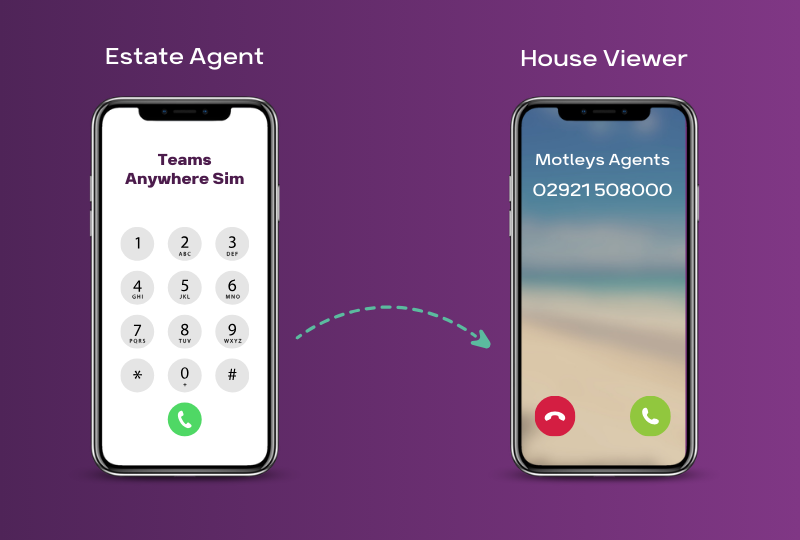
Business WiFi Vs. Wired Networking: The Pros And Cons
Business WiFi Vs. Wired Networking: The Pros And Cons
For businesses today, having robust and reliable internet connectivity is absolutely crucial. Two of the main options for business networking are WiFi and wired networks. Both offer advantages and disadvantages that business owners need to consider carefully when setting up their office connectivity. In this article, we will examine the key differences between WiFi and wired networks and analyse the pros and cons of each to help businesses decide which is better suited for their needs. Let’s get into it.
WiFi vs Wired Networking: Understanding The Difference

WiFi and wired networks operate on different underlying technologies and architectures, which lead to some important distinctions. WiFi networks use radio frequency signals to connect devices to the network wirelessly. The WiFi router broadcasts a wireless signal that devices can detect and connect to if they are within range. With WiFi, mobile devices can freely move around the office while maintaining connectivity. Wired networks like Ethernet rely on physical cabling to connect devices to the network. Devices must have an Ethernet port to plug into cabling that runs throughout the office to central switches or routers. This means devices are restricted by the length of the cable. However, it also provides more reliable physical connections.
Key differences:
- Mobility - WiFi offers greater flexibility and mobility as devices are not tethered to cables. Wired networks restrict mobility to the cable length.
- Speed - Wired networks can currently achieve faster maximum speeds and lower latency than WiFi. The latest WiFi 6 is catching up, though.
- Reliability - Wired networks have more reliable connections as they are not subject to wireless interference. WiFi reliability depends on signal strength.
- Setup - WiFi is easier to set up initially as there is no cabling required. Expanding wired networks means installing cabling.
- Security - Wired networks are inherently more secure as the physical connections are harder to access. WiFi signals can be more easily intercepted.
What Are the Advantages And Disadvantages Of A Wired Network?

Now we know the differences between both, let’s take a look at the advantages and disadvantages of choosing a wired network:
Pros Of A Wired Network
- Speed - Wired connections can achieve gigabit speeds - faster than most WiFi networks. This is crucial for transferring large files or datasets across the network.
- Reliability - Since wired networks use physical cabling, they are not prone to interference like WiFi signals. Connections are consistently solid.
- Latency - Signals travel faster over wired connections than wireless, so wired networks have lower latency. This is important for applications like video conferencing or Voice over IP (VoIP) calls.
- Security - It is much harder for unauthorised users to access a wired network, as physical access to cabling is required. This makes confidential business data transmission more secure.
Disadvantages Of A Wired Network
- Mobility - Wired networks limit the mobility of devices due to cable lengths restricting location. It cannot support mobile use cases like smartphones/tablets.
- Flexibility - Adding new devices or users is harder with wired networks, as it requires installing additional cabling from the device location to the network.
- Installation costs - The initial setup costs can be higher for wired networks as the installation of extensive cabling is required throughout the office space.
- Aesthetics - Cable clutter can lead to an office environment appearing messier and uglier. It can also limit furniture layout.
What Is The Advantage Of Wi-Fi Over Wired Networks?

Now, let’s take a look at the flipside with a deep dive into the pros and cons of Wi-Fi over wired networks.
Advantages Of Wi-Fi
- Mobility - Devices can freely move around the office while maintaining connectivity. Enables flexible working and mobile devices.
- Convenience - Easy to connect devices without cabling. Users can quickly add laptops, smartphones, tablets, etc, with zero configuration.
- Flexibility - It's simpler to reconfigure office layouts and rearrange devices with WiFi networks as there are no cables. Also, it is easy to expand networks.
- Cost - WiFi routers are fairly inexpensive. No cabling costs are required to set up or expand networks.
- Modern - WiFi aligns better with modern workplace mobility trends and flexible working arrangements.
Disadvantages Of Wi-Fi
- Speed - Slower speeds than wired networks, especially at the range from routers. The latest WiFi 6 is narrowing the gap, though, as mentioned earlier.
- Interference - More prone to interference, leading to reliability/connectivity issues.
- Latency - Not as well suited to latency-sensitive applications like VoIP or video conferencing.
- Security - Greater security vulnerabilities as signals can be intercepted.
WiFi vs Wired Networking: Which Is Better For Business?

Ultimately, it depends on the specific business requirements:
- Businesses focused on mobility and flexible working are better suited to WiFi networks. The lack of cabling provides greater agility.
- Businesses transferring large data files across the network frequently may benefit more from wired networks due to the faster speeds.
- Businesses with latency-sensitive voice/video needs likely require the reliability of wired networks.
- Businesses handling highly confidential data are likely better protected with wired networks.
For many modern businesses, a hybrid approach delivers the best of both worlds - a wired backbone with WiFi access points. This provides speed for the core network with mobility for devices. Wired and WiFi networks can also be kept segmented for security. As technology evolves, new WiFi standards like WiFi 6 are closing the gap in speeds. This may shift the balance towards WiFi networks in the long term. Further reading: Troubleshooting Common WiFi Connectivity Issues
Our Final Word
When designing a business network, business owners should thoroughly assess their usage needs, data security concerns, and budget. WiFi delivers excellent convenience and mobility, while wired networking provides optimal speeds and reliability. Combining the two can form an ideal networking solution for many contemporary businesses. As wireless standards improve, WiFi may gain a greater edge due to its flexibility and cost efficiency. But wired networks continue to have advantages in key areas important to businesses. Considering the pros and cons of each is key to selecting the right office network setup. Want to chat with us about the best setup for your business? Get in touch or request a callback.






.jpg)



























.avif)




%20(4).avif)

%20(1).avif)
.avif)
.png)







.avif)
.avif)
%20(1).avif)
.avif)
.avif)